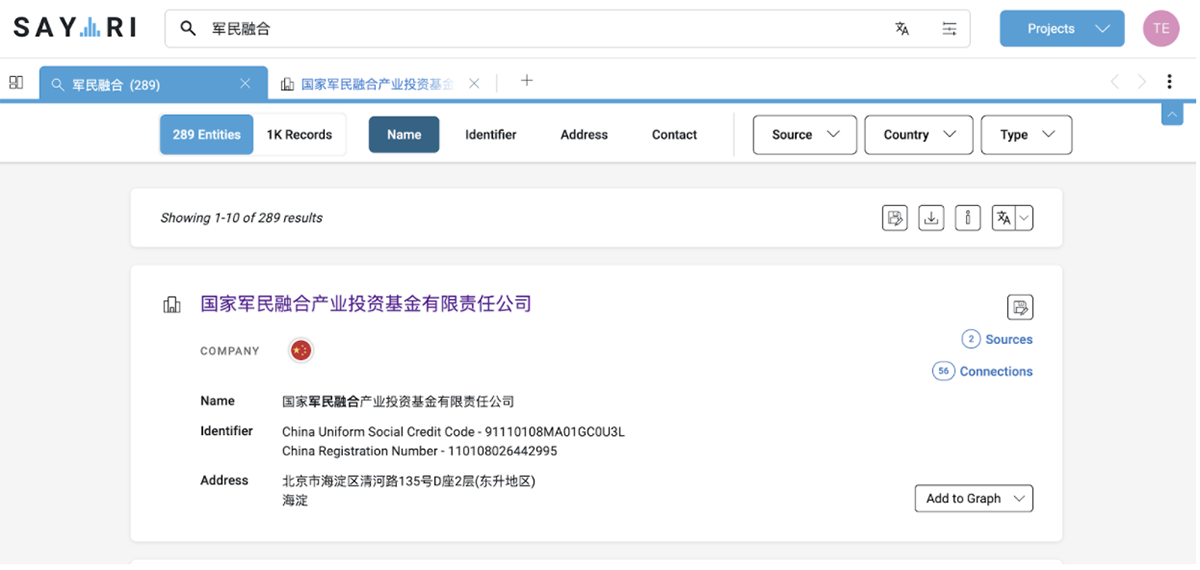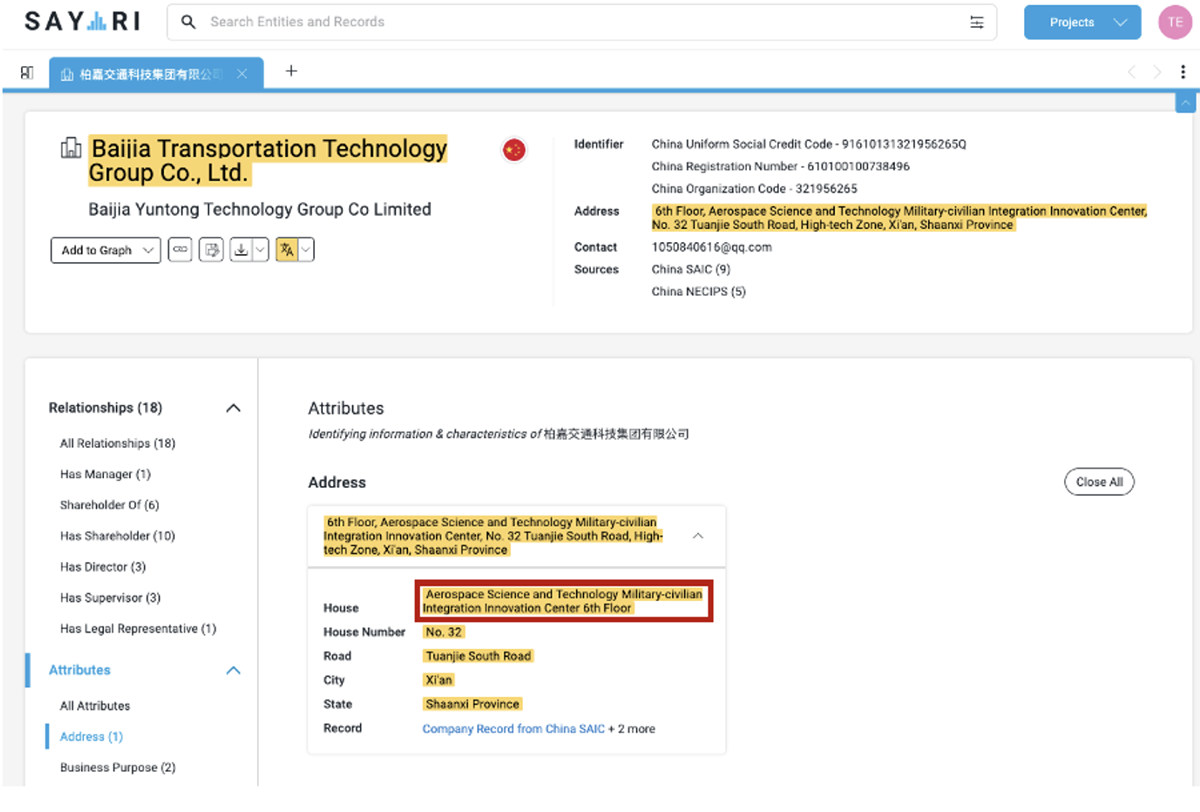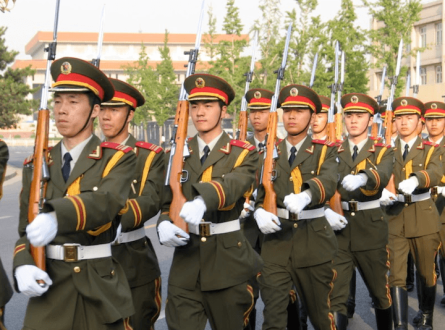This is a follow-up to our previous posts on the highest risk entities owned by “Chinese Communist Military Companies,” the Section 1237 designations, and China’s Military-Civil Fusion strategy.
Participation in Military-Civil Fusion can be identified in public records
Recent regulatory actions compel financial institutions and multinationals to identify Chinese entities with ties to the People’s Liberation Army (PLA) and those that participate in the strategic policy of Military-Civil Fusion (MCF). Our analysis of entities designated by the Department of Defense as “Communist Chinese military companies” and 25,000+ of their downstream entities showed that only a few had overt military affiliations in their names and declared business purposes.
However, this does not mean that military affiliation is always obscured. In fact, many Chinese companies are transparent about their participation in MCF, which allows us to identify them using public records.
Identification through entity names
Chinese company names often include terms for industry or business scope. Some entities incorporate the term for MCF (军民融合) into their official names, making them easily identifiable in public records. With a simple query, we identified over 200 entities with names that incorporate the term 军民融合. These include national and local investment funds, industry-specific investment funds, research institutes, and other entities operating in software, electronics, and other high-tech sectors.

Disclosures of business purpose may also point to MCF
Many entities involved in MCF do not include the term in their company names. In some of these cases, we can still identify MCF associations by searching through a company’s record of disclosed business purpose. For example, Hunan Xiangdian Power Co. Ltd., a large manufacturer of electric motors and generators, began to disclose “research and development of MCF products” as part of its business purpose in 2018. Its official website highlights its contributions to the armament of the PLA military, air force, and navy.

Addresses in MCF zones can indicate heightened risk
An entity’s address may also indicate its affiliation with or participation in MCF initiatives. As part of the national MCF strategy, municipalities, autonomous regions, and provinces can be designated as MCF industry “demonstration bases” or “industrial zones” by the State Administration for Science, Technology and Industry for National Defense. Once designated, these MCF zones serve as hubs for companies in dual-use technologies and as testing beds for partnerships between civilian companies and the military.
For example, Baijia Communications Science & Technology Group Co. Ltd. is an engineering and transportation technology company located in Xi’an. While its name and disclosed business purpose show no traces of MCF, it is located in the “Aerospace Technology Military Civil Integration Innovation Center” of the Xi’an High-tech Zone (陕西省西安市高新区团结南路32号航天科技军民融合创新中心6楼). In December 2017, Baijia Communications Science & Technology Group Co. Ltd. finalized a “MCF strategic collaboration” contract with the 4th Research Institute of China Aerospace Science and Technology Corporation, one of the section 1237 entities designated by the Department of Defense.

While a physical address in a MCF zone does not conclusively prove participation in China’s military-industrial complex, it serves as one of the multiple sources of information we can use to vet an entity’s connection with China’s military and its military-civil fusion strategy.



